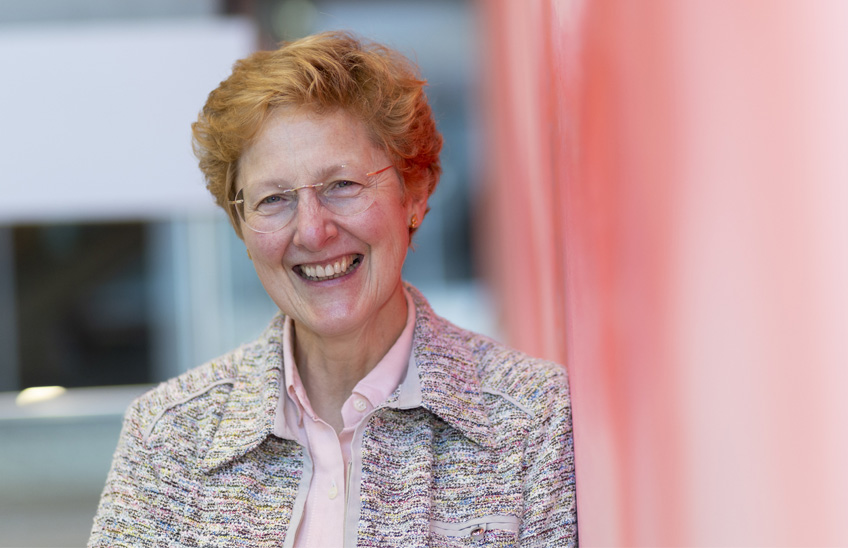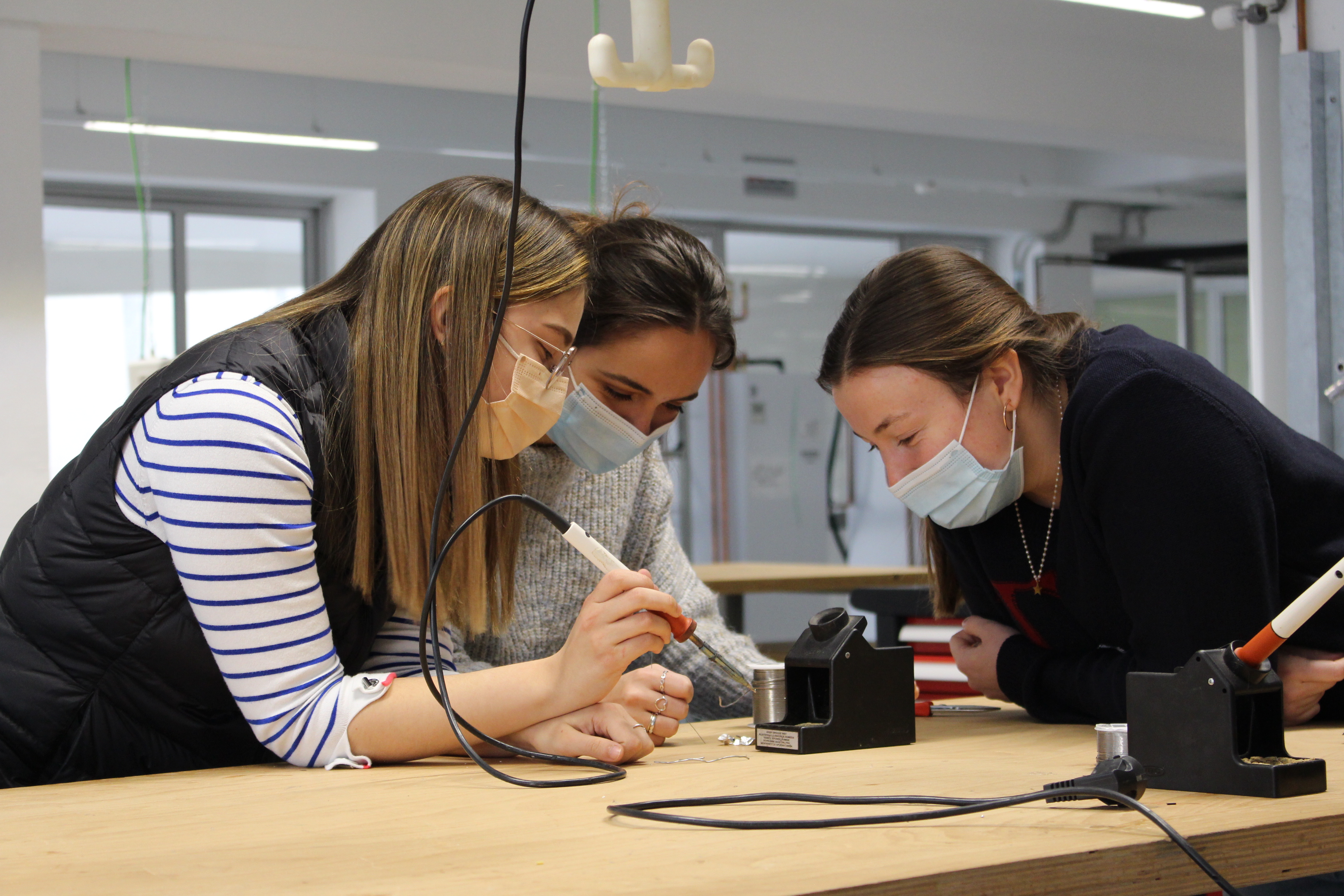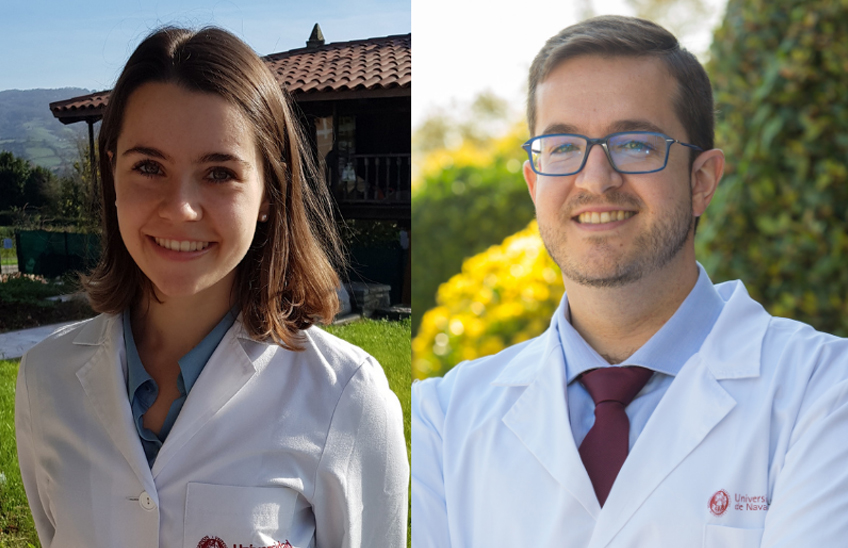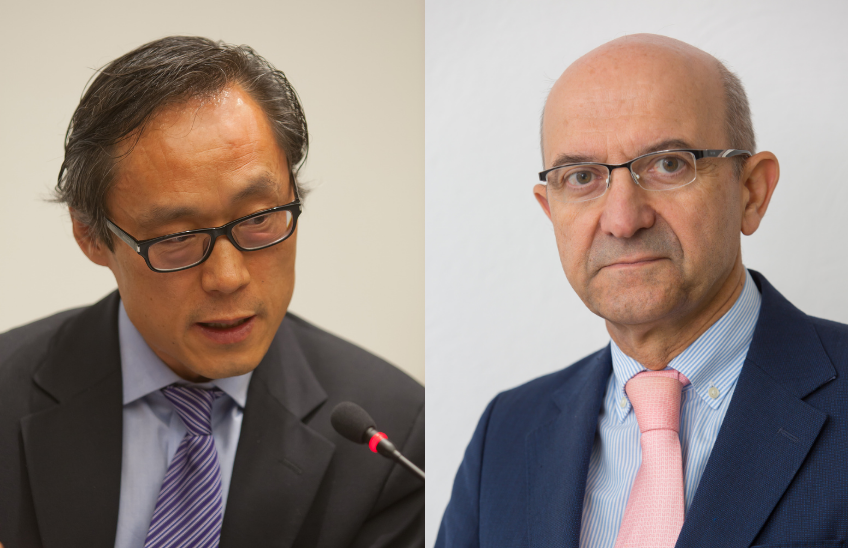"Gonzalo Herranz was a pioneer who knew how to see the importance of ethics in the training of physicians."
The University pays tribute to Professor Emeritus Gonzalo Herranz, a world reference in medical ethics who passed away last May.
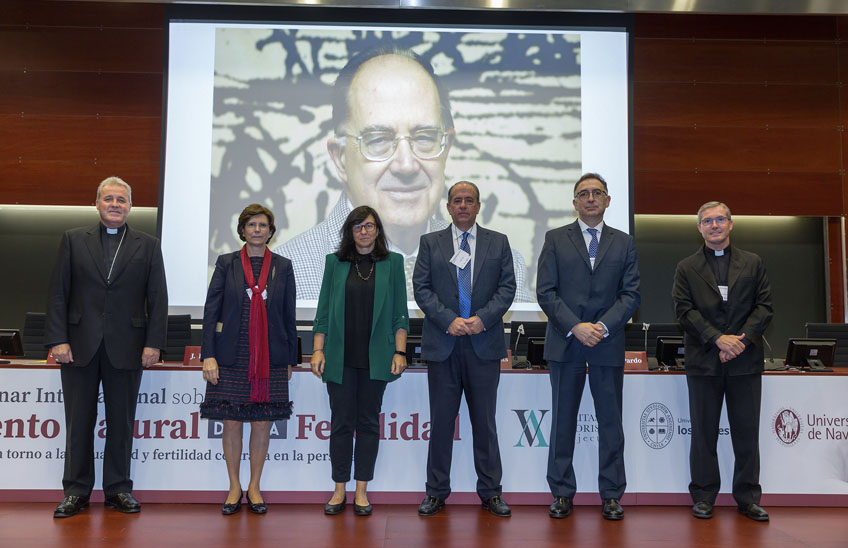
PhotoManuelCastells/From left to right, Mons. Mario Iceta, Pilar León-Sanz, Regina Cárdenas, Jokin De Irala, Secundino Fernández and José María Pardo, during the tribute to Professor Gonzalo Herranz.
23 | 09 | 2021
The University of Navarra hosted a tribute to Professor Gonzalo Herranz, Full Professor emeritus of department of Humanities and Medical Ethics, who passed away last May. During the event, framed in the International Symposium on the Natural Recognition of Fertility, participated Secundino Fernandez, Dean of the School of Medicine, Mons. Mario Iceta, former student of the University, PhD student of Professor Herranz and current Archbishop of Burgos, and the gynecologist of the University of Navarra, Regina Cardenas. Clínica Universidad de Navarra Regina Cardenas.
"I met Don Gonzalo when I came to study at the School de Medicina in 1980. He was the Dean at that time and he was also my advisor. From the first day I could see his way of stimulating the mind, of always seeking amazement as a means of acquiring a deep knowledge and provoking critical thinking", recalled Dr Fernández, the current Dean. "We were all struck by the turn he took in his degree program in 1987, when he left Histology and Pathology Anatomy to focus on Medical Ethics. He was a pioneer who was able to see the importance that this discipline would have in our profession".
The current Archbishop of Burgos, Monsignor Mario Iceta, former student of the University and to whom he directed his doctoral thesis in bioethics, had a special relationship with Dr. Herranz. "I remember how he managed to enliven in the 254 students who made up my class the importance for doctors of transforming life by following clear ethical principles," he confessed. "As PhD student, he always told us that thesis had to be like a bunker, a solid work that nobody could knock down. He was passionate about study and scientific rigour, and he saw them as a service to society in the search for truth".
For her part, Dr. Regina Cárdenas, a gynaecologist at Clínica Universidad de Navarra in Madrid, presented a recent study she has carried out, "Contraception from an ecoethical perspective", which includes the bequest of Professor Herranz: "I did not have the privilege of knowing him or learning from him, but every day I am more aware of the importance of his entire work in the field of Medical Ethics for today's professionals".
She explained how her research has led her to the concept of ecoethics, a discipline that seeks to apply moral principles to the actions of human beings with respect to nature in order to create a harmonious relationship between the two. "It can be the language with which people of different sensibilities share the beauty and care of natural fertility", she alluded to in the context of the international congress on Natural Fertility Recognition which is being held at the University and which brings together almost 3000 participants from 62 countries, at modality both face-to-face and online.
Reading Between the Lines: A Critical History of Contraception
Professor Herranz devoted a large part of his research to the ethical aspects of the health profession, the position of bioethics in the medical curriculum and other practical aspects including the value of nascent life, euthanasia and hospital ethics. For this reason, during the tribute, his latest book Leyendo entre líneas: una historia crítica de la anticoncepción (Reading between the lines: a critical history of contraception) was presented by his other three co-authors, professors Pilar León, José María Pardo and Jokin de Irala.
"It is the finishing touch to the line of research that Don Gonzalo developed in the final years of his life: respect for human life," summarised Dr León. "For more than five years, we studied the documents and sources that appeared, and reviewed the drafts that Professor Herranz was writing. She emphasised that "he was a wise man with an enormous capacity for study and synthesis", capable of rethinking the origin of contraception in the 20th century: "The core topic was his scientific rigour and he proposed a new way of doing bioethics that combined the analysis of the facts core topic with their interpretation", she recalled.
For his part, Professor José María Pardo reviewed the development of another book, Desde el corazón de la Medicina, which reviews the career of Gonzalo Herranz. "We would meet for an hour every week, he would talk and I would record. That's how we spent several months from the end of 2011. In June of the following year, with all the material already transcribed, we met at the high school de Médicos de Navarra and from there an exciting project emerged, which materialized in this Issue. It was published by the Organización Médica Colegial and it was really an act of justice for the enormous contribution of Dr. Herranz in the training of physicians".

